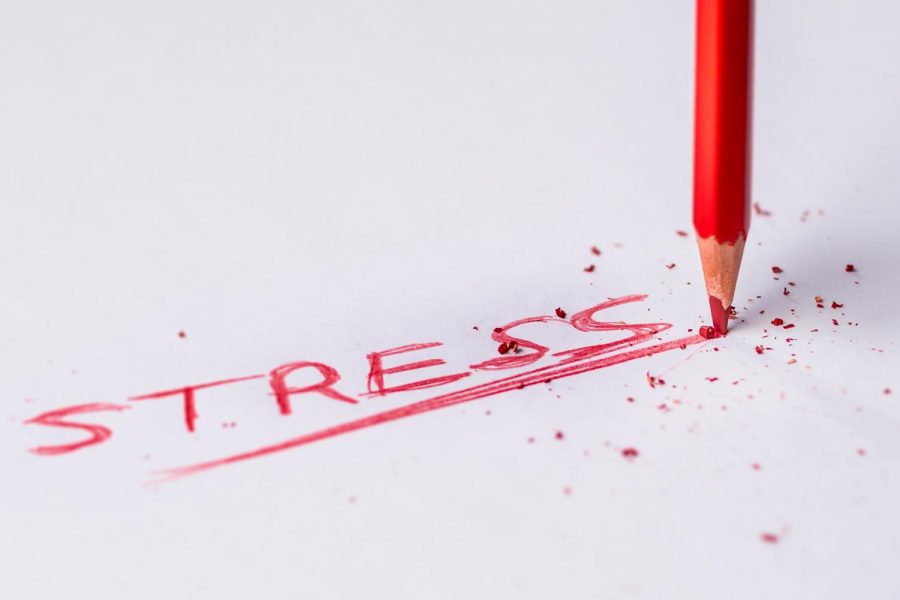The Over-pressured, Over-committed, Almost “college” student
One of the main problems that students cite is stress.
Have you ever talked with parents about their high school experience, ACT exam, or college applications? Chances are, they did not spend four years of high school and seven days a week completely consumed with costly standardized test preparation programs, challenging “college-level classes”, and demanding extracurriculars. But high school students today live in this frenzied reality. Clearly, the notion of the carefree teenage years has vanished. In today’s world where high school students are burdened with the heavy demands of college preparation, the pressure has reached an extreme, with troubling consequences.
According to the Frontiers in Psychology study examining the causes of stress in high school, the survey concluded that college admission was one of the main factors inducing student pressure.
The results of this study are not surprising as societal expectations for students have skyrocketed in recent years. With academic enhancement opportunities and competitive sports teams, students feel an overwhelming pressure to perform at the highest level in every aspect of their high school career.
“We are expected to have amazing grades, perform at our sports practice, and our club leadership is a full commitment. With varsity tennis, AV, and hard classes, I get about four to five hours of sleep a night. It’s all very tiring and stressful,” said Journee Henry, junior.
Between the rigorous class assignments, intense sports schedules, theatre rehearsals, and other extracurriculars, students are stretched to the limit with schedules that surpass a manageable workload. But the pressure on high schoolers is legitimate as colleges fuel this turbocharged environment. With the escalating cost of college and a more highly qualified applicant pool, students must perform exceptionally to secure scholastic and athletic scholarships or gain admission to selective universities. More students than ever pack their schedules with advanced college-level courses and academic programs in hopes of distinguishing themselves on their resume. The profitable test preparation tutors have also capitalized on the anxiety of students and their families. With the pressure to achieve in today’s climate, it is no wonder why students experience an overwhelming amount of stress on a daily basis.
“I can’t help but feel behind and stressed when I look around and see that most people already have their ACT tutors and are taking more and more college classes. I’m feeling an overwhelming amount of pressure,” said Nina Bacon, junior.
But is the excessive pressure of college prep really helping students in the long run? Not according to recent studies. New York University’s research revealed that an increasing number of pressured high school students develop chronic stress, causing serious emotional and physical health problems that hinder their academic success. In addition, a pediatrician and researcher at Yale also has seen an increase in patients with headaches, stomach aches, and other health issues related to academic anxiety.
While high schoolers should be expected to work hard to prepare for college and beyond, our society must draw the line between what is necessary and what is excessive. The monotonous—almost robotic—cycle of “school, sport, study, and repeat” work students to the bone and leaves teens completely exhausted. Physically, mentally, and emotionally drained students struggle to experience the joy of learning or to fully master subject material when they are cramming for the next test between a myriad of extracurricular obligations. The intense schedule simply does not allow students the time to relax, explore other interests, or develop creativity. With little time to recharge, high schoolers may run the risk of burnout long before stepping foot on the college campus.
Both Journee Henry and Nina Bacon reflect the sentiments of many other hard-working students, athletes, performers, and club leaders in high school who experience the effects of college pressure. Unfortunately, there is little students can do to solve this systemic problem inherent in a college preparation world. High schoolers can, however, try to find healthy outlets to combat the stress to live a healthy lifestyle. Nevertheless, it is important to realize that despite societal expectations and an increasing amount of pressure, one’s college resume should not define their definition of success or who they are as a person. With all this in mind, do you think your parents would want to be in high school today? Probably not.




